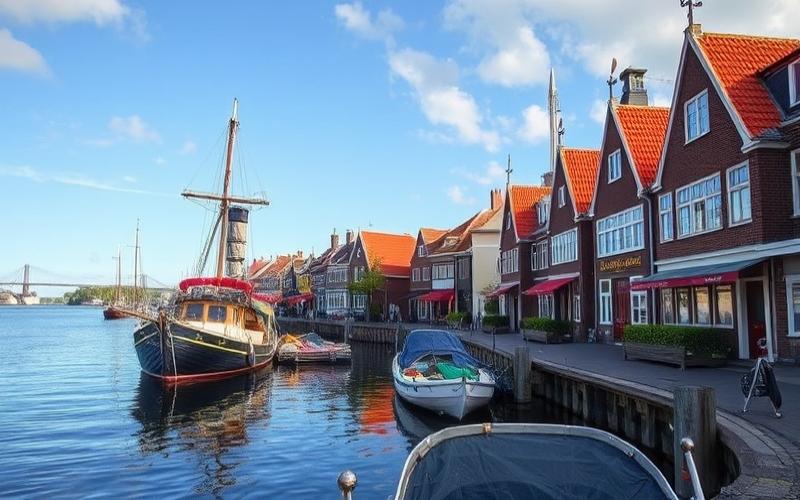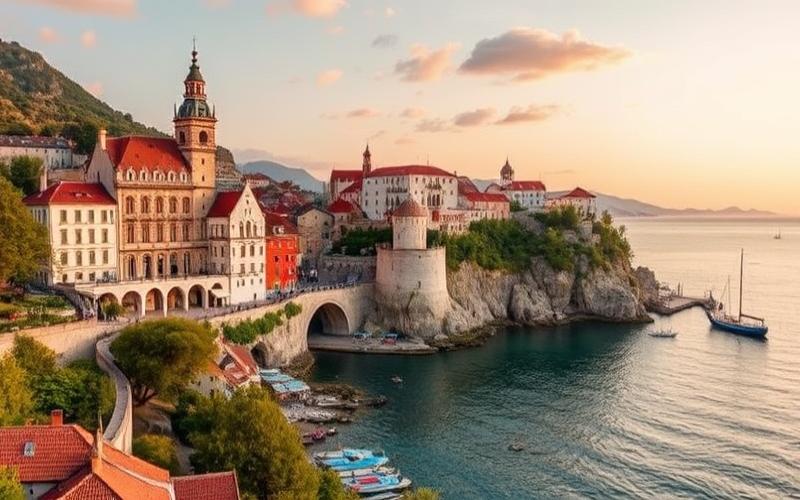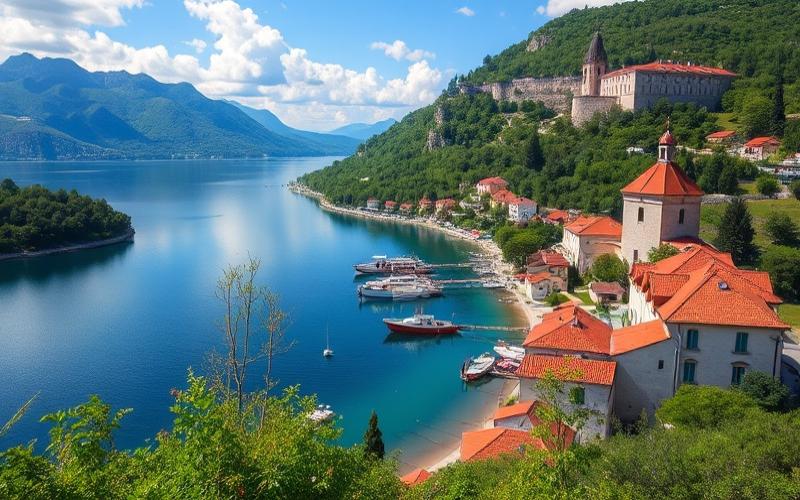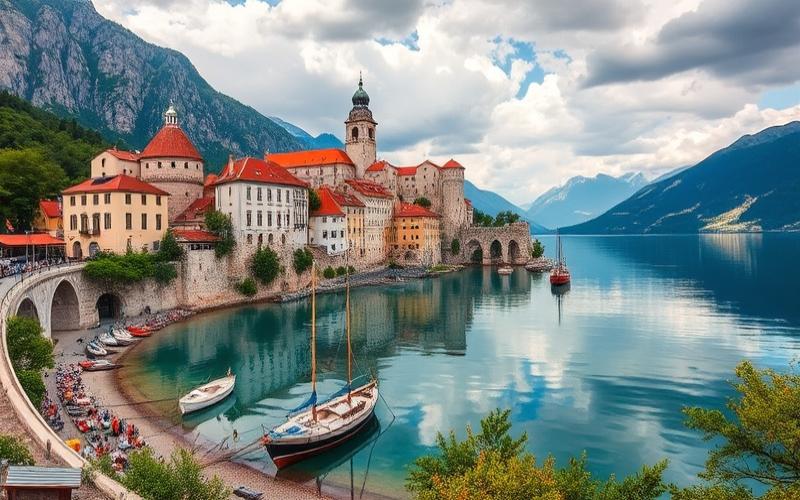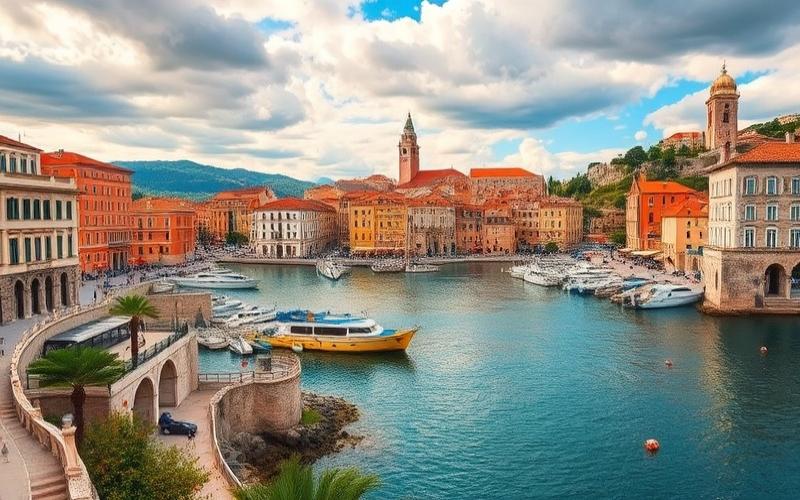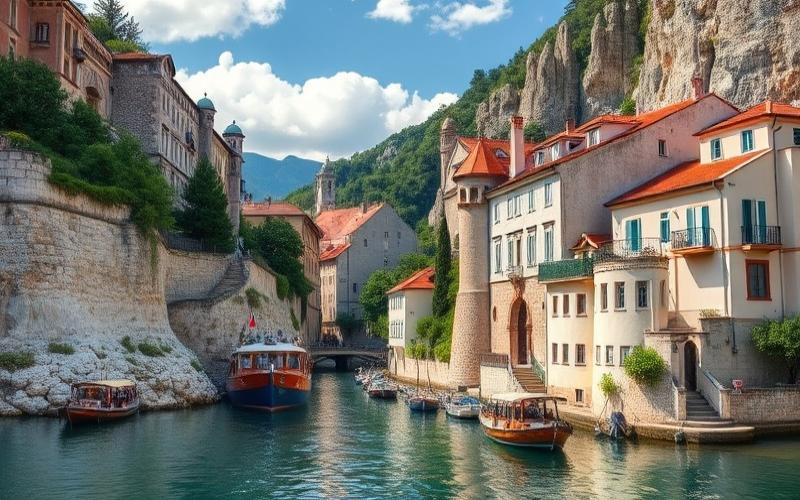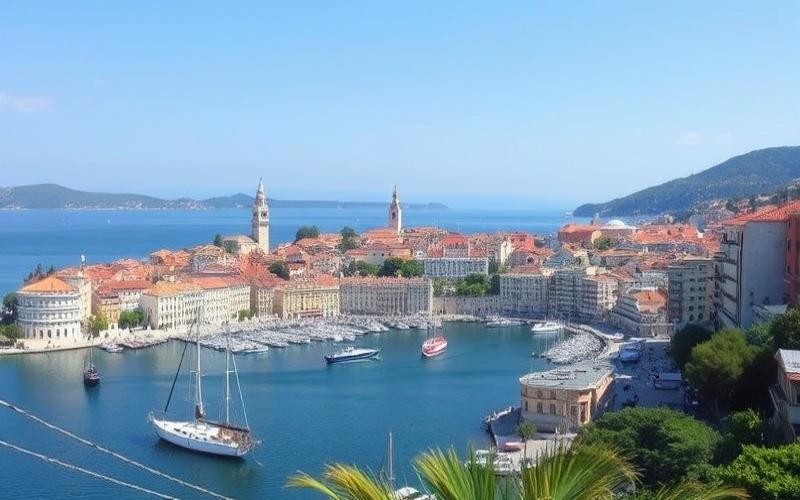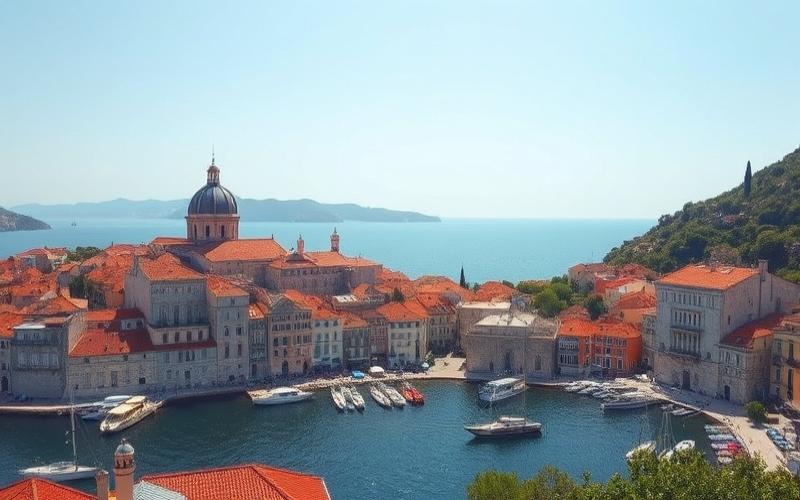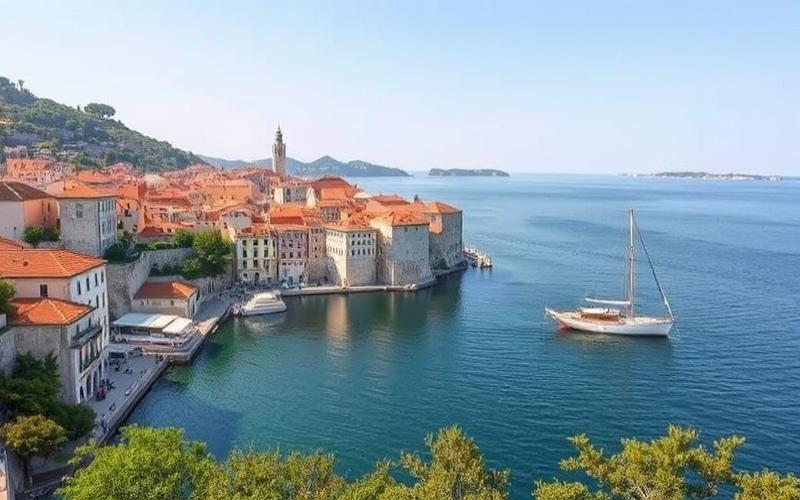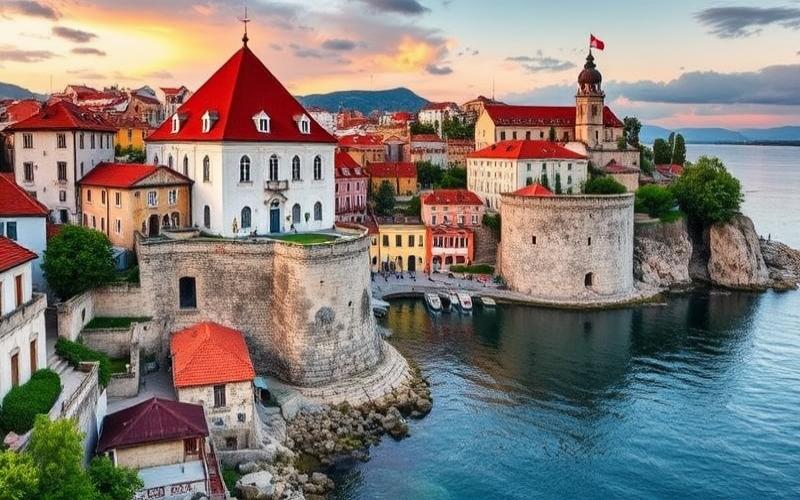
 Published on and written by Cyril Jarnias
Published on and written by Cyril Jarnias
Embarking on acquiring or managing real estate in Croatia may seem like a complex undertaking due to the specific laws and regulations governing this dynamic sector. However, understanding these regulations is essential to avoid potential pitfalls and maximize your investment opportunities in this beautiful country with its rich heritage.
In this article, we reveal the key elements you need to know, whether it’s restrictions related to foreign buyers, property taxes, or rental rules. You will discover how to navigate this legal environment to make your real estate project not only feasible but also successful.
Acquiring Property in Croatia: A Guide for Foreigners
Legal Process for Buying Property in Croatia for Foreigners
1. Key Steps in the Purchase Process:
- Obtain a Croatian tax identification number (OIB), essential for any transaction.
- Find the property and sign a preliminary agreement (pre-contract) that outlines the sale conditions and usually involves paying a deposit (around 10% of the price).
- Verification of the property’s legal status by a local attorney.
- Preparation and signing of the sales contract before a notary.
- For third-country nationals (non-EU/EEA), apply for a purchase permit from the Croatian Ministry of Justice, submitted with the required documents.
- Payment of the balance and associated taxes.
- Registration of the property transfer at the local land registry (cadastre) using the notarized contract.
- Receipt of the property certificate (vlasnički list).
2. Required Documents:
- Passport or ID card
- OIB (Croatian tax number)
- Notarized sales contract
- Proof of payment (deposit, balance, taxes)
- Prior approval from the Ministry of Justice (for non-EU/EEA)
- Proof of citizenship
- Seller’s sales declaration
3. Specific Restrictions and Conditions:
- Principle of reciprocity: Foreign nationals can only buy if their country allows Croatians to do the same.
- EU/EEA citizens can purchase most residential properties without prior authorization, but not agricultural land.
- Third-country nationals must obtain specific authorization from the Ministry of Justice.
- There is generally no limit on the number of properties a foreigner can own.
4. Differences Based on Residence or Nationality:
| Nationality / Status | Purchase Procedure | Main Restrictions |
|---|---|---|
| EU/EEA Citizens | Simplified procedure | No purchase of agricultural land |
| Third-Country Citizens (non-EU) | Ministry authorization required | Reciprocity agreement mandatory |
| Foreign Companies | Possibility to purchase via a company | Different procedure, advice required |
5. Tax Implications:
- Real Estate Sales Tax: 3% of the property value, payable by the buyer.
- Other taxes or fees may apply depending on the property type (residential, commercial, etc.).
- Opening a local bank account is recommended to facilitate payments.
- Hire a local attorney specialized in real estate law to verify the property’s status, draft or review contracts, and ensure process compliance.
- Work with an accredited real estate agent to avoid fraud and benefit from better local market knowledge.
- Always verify that the seller is the registered owner and that no debts or encumbrances are attached to the property.
- Ensure the property is correctly registered at the cadastre before final payment.
7. Common Mistakes to Avoid:
- Neglecting to verify the property’s legal status or registration.
- Failing to obtain the necessary authorization from the Ministry of Justice for non-EU nationals.
- Paying a deposit without signing a preliminary agreement or notarized contract.
- Underestimating administrative delays for obtaining permits.
- Not including all important conditions in the sales contract.
8. Relevant Bodies and Authorities to Contact:
- Ministry of Justice of the Republic of Croatia (for purchase authorization)
- Local Municipal Court (for land registration)
- Public Notary (for document legalization)
- Licensed Real Estate Agency and Specialized Attorney
- Cadastre Office (for land checks)
- Croatian Tax Administration (for OIB and taxes)
Important:
Purchasing real estate in Croatia as a foreigner requires rigor and caution. Assistance from local professionals is highly recommended at every step.
Good to Know:
When a foreigner wishes to buy property in Croatia, they must familiarize themselves with the legal process, which includes obtaining authorization from the Ministry of Justice in some cases, unless they are a national of an EU country, where conditions are more flexible. Required documents include a passport, a sales contract, and a cadastre extract. The procedure may vary depending on residence or nationality, and hiring a local attorney or accredited real estate agent is strongly advised to avoid common mistakes, such as non-compliance with local laws. Buyers must consider taxes to be paid, such as the property transfer tax which amounts to 3% of the purchase price. Contacting authorities like the Croatian Land Registry or municipal offices can provide valuable information. To avoid common pitfalls, it is crucial to verify the seller’s legitimacy and the clarity of the property titles.
Understanding Real Estate Laws and Regulations in Croatia
Main Laws and Regulations of the Croatian Real Estate Market
The Croatian real estate market is primarily governed by the Ownership and Other Real Rights Act, the Construction Act, and various local regulations concerning urban planning and taxation. Since 2025, reforms have introduced additional taxes on short-term rentals and vacant properties to stabilize the market and promote long-term leasing.
Property Rights and Purchase Restrictions
| Buyer Category | Main Rights/Restrictions |
|---|---|
| Croatian Citizens | Unrestricted access to all property types (residential, commercial, agricultural, forestry). |
| EU Citizens | Can freely purchase residential and commercial properties. Limit on agricultural land and forests except via a Croatian company. |
| Non-Residents outside EU | Purchase possible under reciprocity conditions, with approval from the Ministry of Justice. Often, establishing a Croatian company is required. |
- Non-residents (outside the EU) must obtain official authorization and are subject to the reciprocity rule. For certain properties (agricultural, forests), direct purchase is generally not permitted; it must be done through a Croatian company.
- EU citizens enjoy access almost identical to locals, with the notable exception of agricultural land.
Property Registration Procedure
- Signing a sales contract authenticated by a notary.
- Filing the contract and supporting documents at the local land registry (Zemljišna knjiga).
- Verification of titles and absence of encumbrances or disputes is recommended (due diligence).
- Obtaining the debt-free certificate and official registration of the new owner.
Tax Obligations and Property Taxes
| Tax/Fee | Amount/Condition |
|---|---|
| Property Transfer Tax | 3% of the purchase price (on resale of existing properties). |
| VAT | 25% (only on new properties sold by a company). |
| Real Estate Agency Fees | Approximately 3% + VAT, borne by the buyer or shared per agreement. |
| Notary and Legal Fees | Approximately 1% + VAT. |
| Annual Property Tax | Currently negligible, but reforms may introduce a more substantial tax. |
- Short-term rentals and vacant properties may be subject to additional taxes, especially in tourist areas.
- Properties used as a primary residence or leased long-term (10 months/year) may qualify for exemptions.
Building Permits and Compliance
- Any construction project must be preceded by obtaining a building permit from local authorities.
- Check the land classification (residential, commercial, agricultural) and compliance with urban plans.
- An occupancy permit is necessary for any transaction involving a new property.
Guarantees for Fair and Transparent Transactions
- Use of a real estate specialized attorney is highly recommended.
- Systematic verification of the property’s legal status, absence of mortgage or dispute.
- Transactions must be officially registered to be legally enforceable.
Concrete Examples
- A German citizen can buy an apartment in Split without restrictions, pay 3% transfer tax, and register the property in their name.
- An American investor must either prove reciprocity or establish a company in Croatia to acquire a property and will need approval from the competent ministry.
Key Takeaway: Respecting legal and tax steps, as well as verifying title and permit compliance, is essential to secure a real estate transaction in Croatia.
Good to Know:
In Croatia, the real estate market is primarily regulated by the property law and its articles governing transactions. Non-EU residents must obtain special authorization from the Ministry of Justice to purchase real estate. Property rights are guaranteed for both locals and foreigners, but the latter may face more constraints. Registering the property at the cadastre is an essential procedure to secure the transaction. Tax obligations include the property transfer tax, generally 3% of the purchase price, and VAT on new constructions. Building permits must be obtained for any new construction or major modification, with strict controls on compliance with urban standards. To ensure fair transactions, it is advisable to use a notary and an attorney specialized in Croatian real estate law.
The Secrets of Croatian Real Estate Taxation
Tax Framework for Real Estate Transactions in Croatia
The purchase of real estate in Croatia is subject to a real estate acquisition tax. The standard rate is generally 5% of the sales contract price or the value estimated by the tax administration, and this tax is paid by the buyer. For newly built properties sold directly by a Croatian company, the rate can drop to about 1.5%. European citizens can buy a property under the same conditions as Croatian residents, while for non-residents outside the EU, ministerial approval may be required.
| Transaction Type | Tax Rate | Condition |
| Acquisition (secondary market) | 5% | Paid by the buyer |
| Acquisition (new property via company) | ~1.5% | If seller = Croatian company |
Applicable VAT and Exemptions
VAT (PDV) applies mainly to new properties sold directly by companies. On the secondary market or between individuals, VAT is generally not required but replaced by the real estate transfer tax mentioned above.
Exemptions/reductions:
- Some newly constructed properties benefit from a reduced acquisition rate.
- The cadastral value often serves as the tax base: it may be lower than the actual market value.
- Additional local taxes may exist depending on the municipality (urban services).
Annual and Local Taxation
Besides the single national acquisition tax:
- An annual property tax applies to owners: it varies between 0.15% and 0.35% of the cadastral value.
- Municipal fees for local services may be added (waste collection…).
List of main annual obligations:
- Payment of the national property tax
- Regular verification of the cadastral register
- Possible payment of local taxes
Tax Obligations on Rental Income and Capital Gains
Owners must declare any rental income generated in Croatia. Non-residents are taxed the same as residents on these locally earned rental incomes.
| Status | Rental Income | Capital Gains |
| Resident | Taxable | Taxable |
| Non-Resident | Taxable if earned | Taxable if realized |
Capital gains realized upon sale are also subject to taxation according to the regime applicable at the time of the transaction.
Recent Tax Reforms Impacting the Real Estate Sector
Since January 1, 2025:
- Simplification of the real estate tax system
- Partial elimination of double taxation
- Introduction/adjustment of a generalized annual property tax
These changes aim to attract more foreign investors while addressing social issues such as the lack of affordable housing.
Practical list to legally optimize your real estate taxation:
- Prefer purchasing via a company to potentially benefit from a reduced rate.
- Quickly certify your contract so its tax base aligns with official cadastral values.
- Inquire with local authorities about any additional taxes applicable in each municipality.
To maximize tax benefits while strictly respecting the current Croatian legal framework:
- Always proceed with a prior verification at the cadastral register before any acquisition or annual declaration.
- Regularly consult a local expert to immediately incorporate any recent tax reform into your real estate wealth strategy.
- Carefully prepare supporting documents for cross-border declarations if non-resident; this also helps avoid any involuntary double taxation thanks to existing bilateral agreements with some European countries.
In summary: mastering these tax secrets not only secures your investment but also sustainably optimizes your real estate assets under Croatian jurisdiction.
Good to Know:
In Croatia, the acquisition of real estate is subject to a property transfer tax of 3%, unless the buyer is subject to VAT, generally applicable to new constructions at a rate of 25%. Certain exemptions may apply, particularly for family transactions. Non-residents are taxed on rental income at a flat rate of 15%, while residents pay according to the progressive scale. As for capital gains, a 10% tax is imposed if the sale occurs within two years of purchase. Recent reforms have simplified tax formalities, encouraging investment while being vigilant to respect Croatian legislation. To optimize tax-wise, consider the advice of a local expert who knows not only the laws but also the practical nuances of the market.
Property Owners’ Rights and Regulatory Developments in Croatia
History of Real Estate Owners’ Rights in Croatia
- Before independence, the socialist regime granted a transferable and highly protective right of occupancy for occupants, even in private housing, reducing the effective power of private owners.
- The 1996 Housing Lease Act profoundly changed this regime: it removed the perpetual right of occupancy from occupants of privatized housing, allowing owners to recover their property, but initially subject to providing replacement housing. In 1998, this relocation obligation was annulled by the Constitutional Court, leading to evictions without compensation for the affected families.
Main Legislative Changes Since EU Accession
- Since 2009, as part of European harmonization, EU citizens can freely purchase residential real estate in Croatia under the same conditions as Croatian citizens.
- The purchase procedure was simplified and standardized: obtaining a tax number (OIB), verification of the title deed, preliminary sales agreement with a deposit, finalization before a notary, cadastral registration, and tax payment.
- Full ownership became the norm, with the possibility of co-ownership in buildings. Purchase of agricultural land or forests remains restricted for foreigners, except via a company.
Influence of These Changes on Owners’ Rights
- Purchase: EU nationals benefit from expanded access and a fast procedure (30–45 days), while non-nationals must obtain ministerial authorization (2 to 4 months delay).
- Sale: Transparency of land and cadastral registries facilitates sales, but agreement from all co-owners is required in case of joint ownership.
- Rental: Rental income is taxed at a flat rate of 10% (increased to 15% with surtaxes for non-residents). Owners must declare income and comply with local standards (written contract, tax declaration, housing safety).
Current Regulations Protecting Owners
- Title Verification and Protection: Centralized land registration system allowing online verification of ownership, encumbrances, and mortgages.
- Absence of Leasehold Rights: Owners of private properties are not subject to usage rights or taxes on land use.
- Legal Recourse: Owners have legal means to recover their property in case of non-payment of rent or illegal occupation.
Owner Obligations
- Payment of the real estate transfer tax (3% on resold properties).
- Payment of VAT on new constructions (25%, included in the price).
- Payment of the annual property tax (moderate, depending on the municipality).
- Compliance with safety and habitability standards for rental.
- Declaration of rental income and payment of associated taxes.
| Operation | Estimated Time (EU) | Estimated Time (non-EU) | Main Fees/Taxes |
|---|---|---|---|
| Purchase | 30–45 days | 2–4 months | 3% transfer, 25% VAT new |
| Rental | – | – | 10% (15% non-residents) |
| Sale | – | – | 1–1.5% legal fees |
Recent or Expected Developments
- Since the adoption of the euro (2023), transaction transparency and legal security have been strengthened.
- Discussions are underway to ease foreign access to agricultural land ownership, but no major reform has been adopted yet.
- Tax compliance and seasonal rental declaration obligations are strengthened to combat the informal economy in the tourism sector.
Concrete Examples and Case Studies
- The market opening to EU citizens in 2009 boosted foreign investment, especially on the Adriatic coast, where foreign demand led to price increases and higher rental yields.
- After the removal of the relocation obligation in 1998, many owners recovered their properties, but families were evicted without compensation, illustrating the importance of balancing property rights and social protection.
Key Takeaway: Since European integration, Croatia offers a stable, transparent, and attractive legal framework for owners, while imposing precise tax obligations and compliance procedures. Successive reforms have strengthened owners’ rights, but some restrictions persist for agricultural land and forests.
Good to Know:
Since Croatia’s accession to the European Union in 2013, the rights of real estate owners have seen several notable developments. Legislation has been harmonized with European standards, facilitating the purchase of real estate for European citizens while strengthening property rights. Owners must now comply with strict rental standards, including through adherence to standardized lease contracts and tenant rights. For example, the law now imposes a three-month notice period for contract termination by the owner. In 2021, additional regulations were introduced to protect cultural properties, affecting the sale and renovation of listed properties. Currently, reforms are under discussion to simplify land registration procedures and speed up sales processes. Owners must remain attentive to these changes to ensure legal compliance and protect their investments.
Disclaimer: The information provided on this website is for informational purposes only and does not constitute financial, legal, or professional advice. We encourage you to consult qualified experts before making any investment, real estate, or expatriation decisions. Although we strive to maintain up-to-date and accurate information, we do not guarantee the completeness, accuracy, or timeliness of the proposed content. As investment and expatriation involve risks, we disclaim any liability for potential losses or damages arising from the use of this site. Your use of this site confirms your acceptance of these terms and your understanding of the associated risks.











